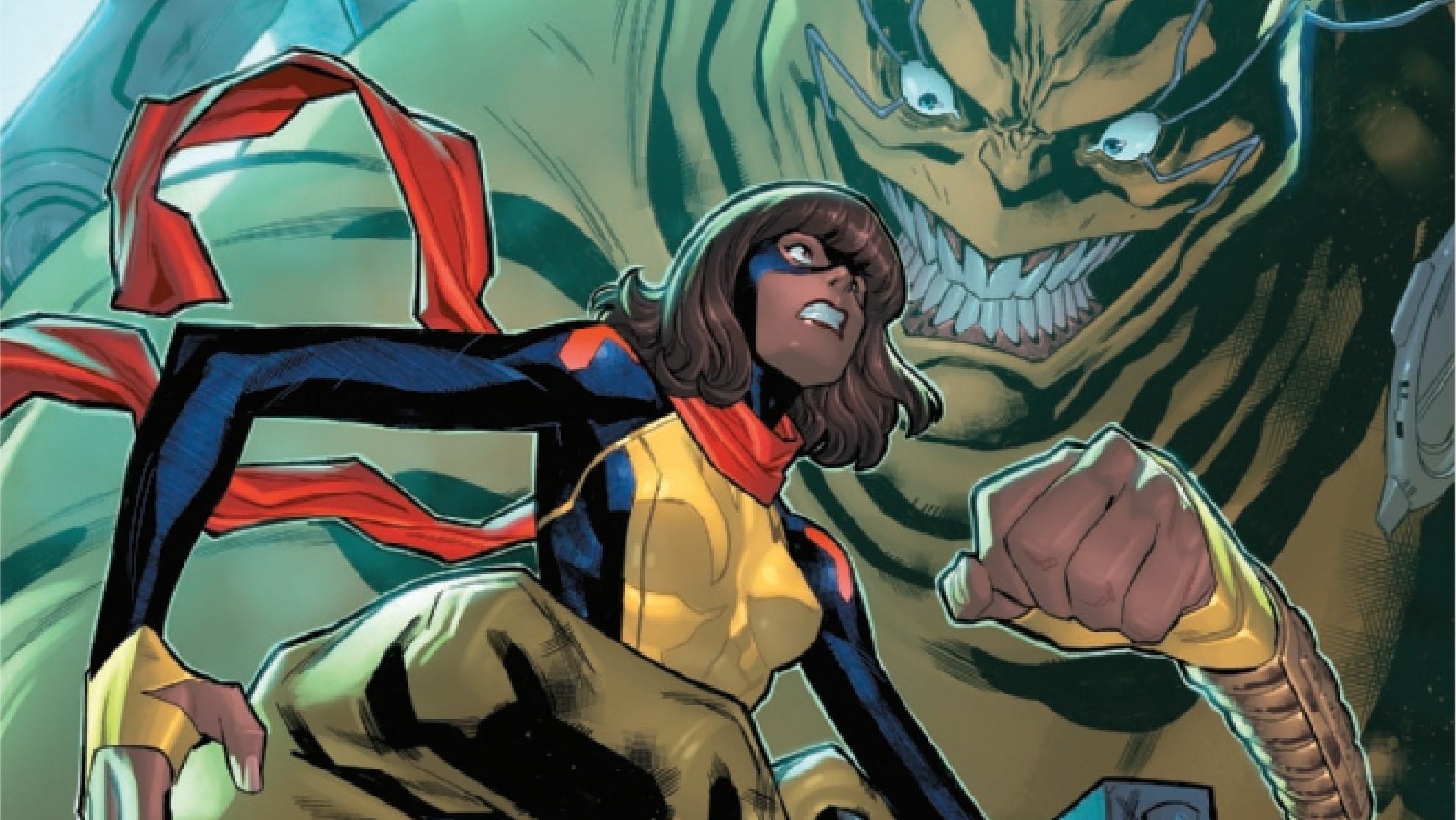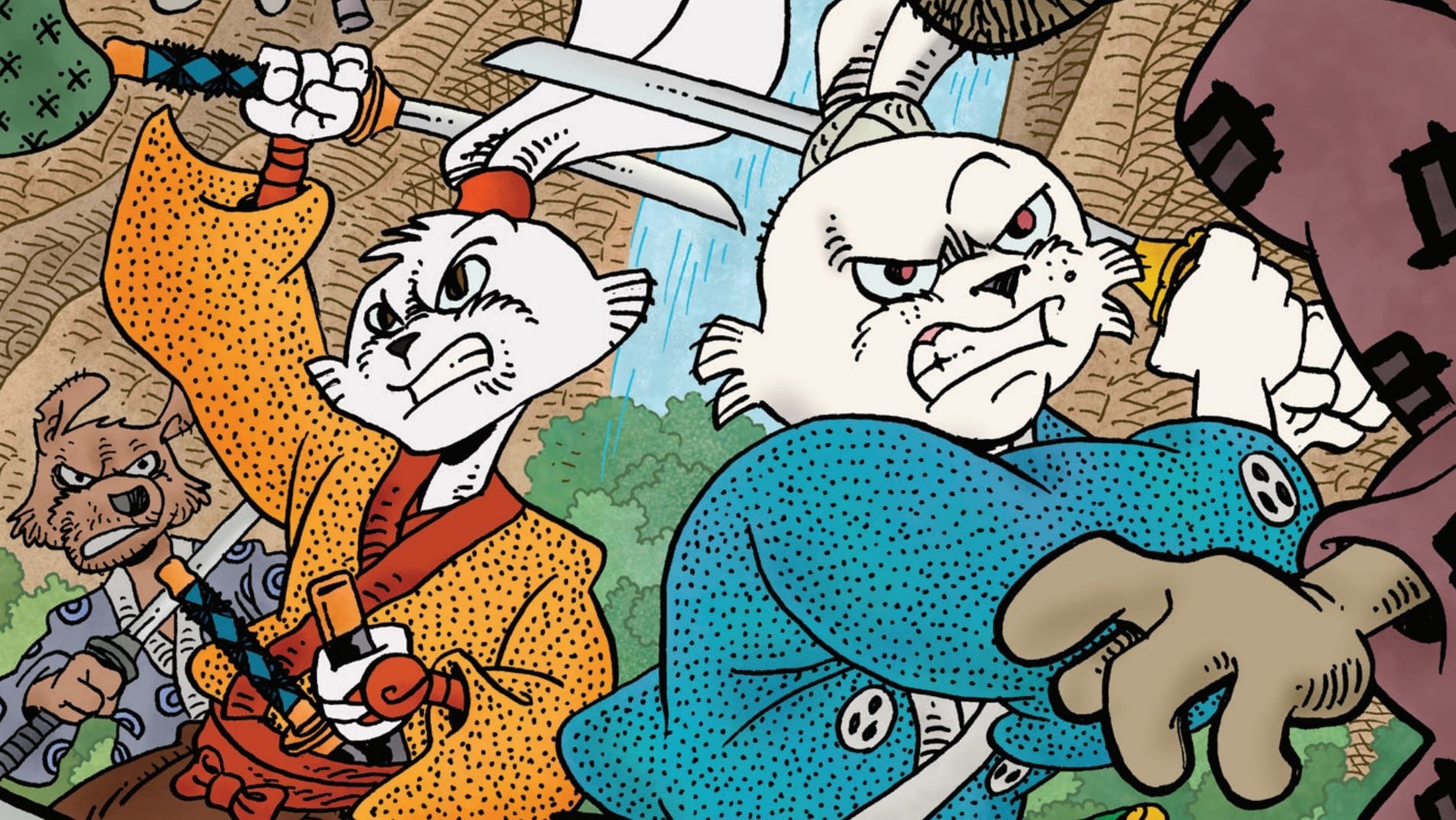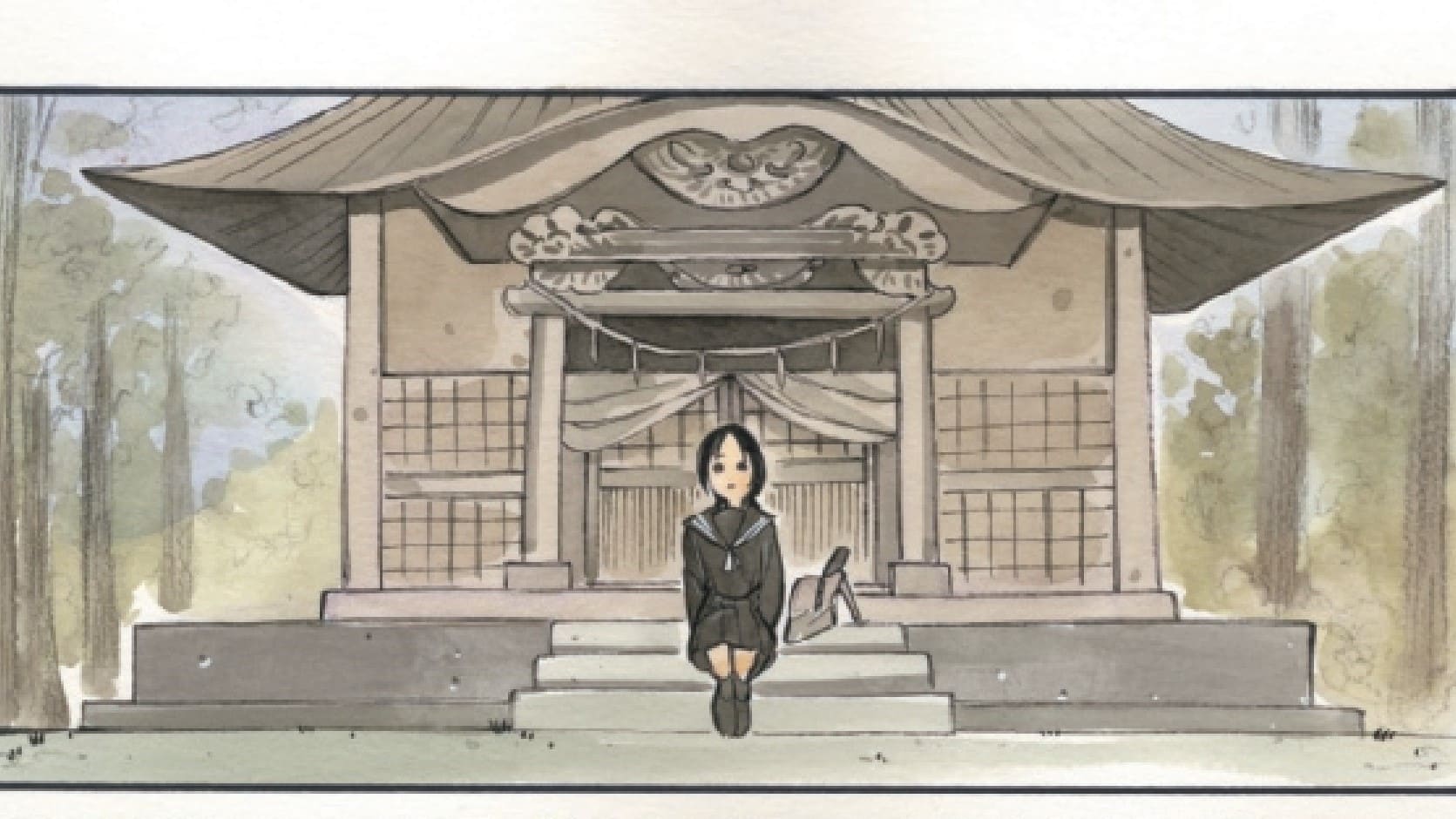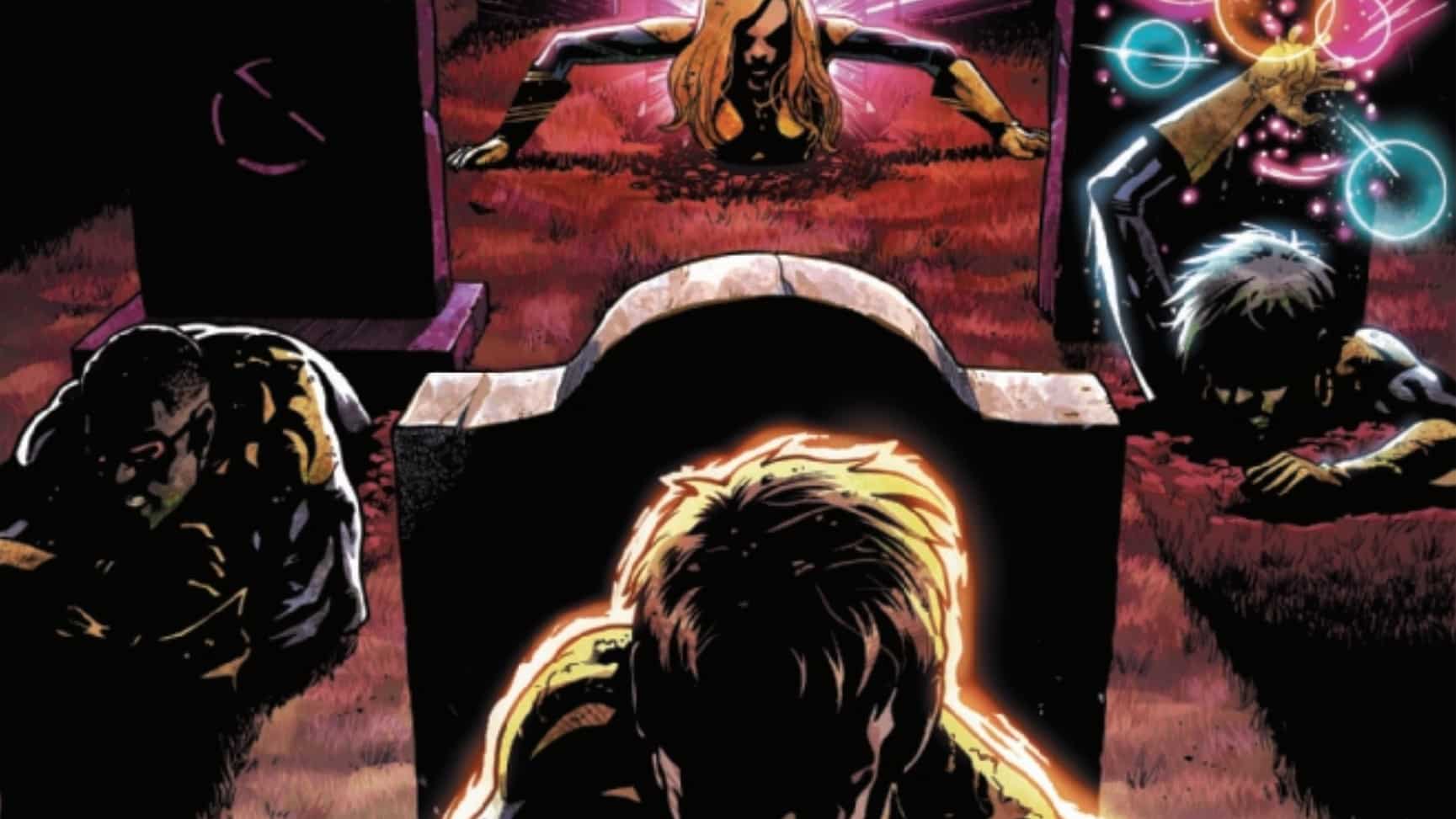After many years, many deaths and one enraged confrontation, Laila Starr prepares to meet an aged Darius Shah for what might be the final time. But what is the outcome she is hoping for here? Is immortality genuinely possible for mortals? And what, ultimately, do endings truly mean? The Many Deaths of Laila Starr #5 is written by Ram V, illustrated by Filipe Andrade, color assists by Inês Amaro and lettered by AndWorld Design for BOOM Studios.
Armaan Babu: I have been both looking forward to and dreading this issue for a while. I’ve loved every issue of this comic so far, and I do not want it to end. Now that it has, though, I feel a little bit at a loss. Fortunately, I have the very best way of saying goodbye — sharing my thoughts and feelings about this series and its conclusion here with you, Andrea. What are your first thoughts here at the end?
Andrea Ayres: You know, I heard on a podcast that if you like the ending of anything too much, then the artwork hasn’t adequately done its job (or you didn’t like it that much in the first place). I’m not sure I buy that, mainly because this podcast is pretentious as hell. [Grote’s note: Wasn’t me] Still, it has me thinking about how I read this issue. As beautiful as it is, it doesn’t quite live up to the kind of majesty I think it desires.
Armaan: I’m definitely going to need some elaboration on that — so let’s dive right in!
Mangled and Maddened

Armaan: We move away from Mumbai this issue, opening up on a beach in Goa. You know, I happened to write my very first article for ComicsXF on a beach that looks a lot like this one. It’s a familiar sight. I have vacationed in Goa several times. It’s a beautiful coastal location, with some of the best food in the world, and as a getaway, it always feels a bit like a … cheat, I think, is the best word for it. When it feels like life’s consigned you to urban dreariness and an endless work slog, you escape to Goa. You enjoy the sunsets, ridiculously cheap alcohol, endure the touristiness of it all, and get away from life in this surreal, laid-back world.
It’s a place that feels like it could be an afterlife, and as such, it’s an excellent setting for the end of a story about death.
After a young girl finds a pup with a broken leg, she takes it to Darius Shah, who has moved to Goa and is spending his time bringing nearly dead strays back to full health. It’s a far cry from his defiant promise to end death once and for all — and a much kinder Darius than the raging, grief-fuelled man we saw last.
One thing I was wondering — I know that Goa’s got a more relaxed pace than the city of Mumbai, I see these panels and immediately am brought back to that serenity — but I don’t think you’ve been to either Mumbai or Goa. I wondered if that change of pace was well communicated to you based on what you see here alone.
Andrea: I love the way you describe it. You have painted a glorious picture of the environment. The only time my family and I ever visited large bodies of water was when we went to Lake Michigan. The vastness of a coastline was lost on me until I was 13. It’s a fundamentally different experience. Now that I live by the ocean, I can say the feeling did come across. The sparseness of the panels, the distance between the homes, the children running free all seem to communicate the serenity you describe. The colors also strike me as more sun-washed than they have been elsewhere.
Seeing Darius again was painful. Laila Starr has been such a bitter reminder of how short, turbulent and beautiful life is. Darius is old. He is dying. The grief of losing his loved one caused him to miss out on his son’s life. We don’t find this out until later in the issue, however. We lose the ones we love, and we forget to live. I can’t tell you how much that resonates with me. I have made this mistake; I am making this mistake right now. Sometimes the pain of death is so overwhelming that living feels like its own kind of burden. Darius numbed the pain. The children call him old and addled from drink and drugs. He fixed the “mangled and maddened” creatures because every life is worthy. I do wish that sometimes Ram didn’t spell it all out as explicitly as he does throughout Laila Starr #5. I’ll speak more about this later. What did you think about seeing Darius again?
Armaan: I had quite a different reaction to our first glimpse of Darius this issue. The prose and that first shadow-faced panel of him built up this creepy old mad scientist you only went to in desperate times. Still, immediately after that, we see a Darius rolling his eyes at the idealism of a young child hoping to stave off death — and rolling his eyes at himself, too, because, of course, he’s going to help her.
You mentioned how painful it was seeing someone who has forgotten how to live after losing his loved one. That’s something I felt later in the issue. It is the tragedy of a man who let his life slip away because he refused to come to terms with death, quite literally. But in these first moments, we get to see a Darius who’s a lot more in control of his life than we’ve gotten to see so far.
Throughout the series, we’ve seen a Darius who’s thrown about by fate, this way and that. Darius is defined by things entirely under his control. This Darius, though — he may not have made the most he could out of his life, but the life he’s built here is his. There’s a kindness, there’s a gentleness and there’s above all an acceptance to him. It may have taken too long, but he’s accepted death and his ability to reckon with it. I’m no stranger to the sympathy card used for the rescue of a three-legged dog, but between the goofy glasses, the quiet, pet-filled home and the openness of spirit he displays with the child, this is a character I’ve come to like. It’s been decades since we’ve seen him last, and he’s had time to grow. It shows.
Someone who’s not had a lot of time for growth, however, is Laila Starr, who is just as anxious about meeting Darius as the day she last saw him, which can’t be more than a week ago as far as she’s concerned.
Andrea: I do believe Darius has grown, but it’s come at a high cost. I think seeing his house overrun by injured animals and the inevitability of his coming to their rescue comes out a desire to fix in animals what he cannot, could not fix for himself. I like that our different interpretations and feelings about Darius seem to be at the core of Laila Starr. How much of our life is fate? Is any of it inevitable? Are we ever in control? These are the massive questions at the core of Laila Starr.
Poetry

Armaan: We have a few pages devoted to summing up her journey so far. One thing that is bugging me here is the mention that she’s died six times, and loyal readers, you know I’ve been keeping a running count of her deaths up to this point, and the total should be five. The original Laila Starr jumped out a window, then as DeathStarr she was hit by a truck, drowned in the waters of the Walkeshwar temple, trapped in flames from a magic cigarette, finally crushed beneath a broken temple. Where’s that extra death coming from?
Death mysteries aside, there’s just enough room to rebuild a series’ worth of anxiety for her and Darius’ final meeting. What did you think of how this was set up?
Andrea: Nice catch, Armaan. Well, that’s going to plague me. What I love about Laila Starr is how for a god, she is so very human. She’s searching for the meaning of life in a book of poetry she buys at an airport. The airport is a great location to describe Starr’s anxiety as she prepares to meet with Darius again. It’s a place of limbo. That’s where Starr is in her journey; that’s where Darius is in his. It’s twilight, the colors of which have dominated this series.
As Laila sits with the wind blowing her hair, she looks fashionable as ever. The road winds, and three hours later, the pair finally come face to face. Laila is untouched by the passage of time, while Darius is old and gray. She finally removes her sunglasses, and we see her eyes for the first time this issue. Laila is ready to face him, herself? At the very least, she isn’t hiding behind books of poetry or sunglasses any longer.
From the start of the series, we expect a massive confrontation between Starr and Shah. That’s not how their final meeting pans out, though, and I’m grateful for that. Before I go into any more detail, I’d love to know your thoughts about their final meeting?
Armaan: Oof. That’s a big question, isn’t it? It takes up the lion’s share of this issue.
You mentioned twilight, but let’s talk about sunsets. It feels appropriate for this issue — the sun is setting on this series, on Darius’ life and, of course, their conversation ends with them watching the sunset on the beach. Those sunset colors fill every panel of this meeting, even in the flashback.
I’ve always loved sunsets. They’ve always been my favorite time of day. I feel like it’s impossible, or more complicated, to be mad during one. Sunset paints the world in vibrant, fading colors. You become aware that your day is over, that the time to rest is nigh. It’s a slow, beautiful process, and if you have time to enjoy it, you get to make peace with your day. Good, bad, painful, perfect, it doesn’t matter because the end is coming soon, and the sky is begging you to let things go and just live in the now.
Once a goddess of blue, Laila Starr may have felt that twilight, but Darius Shah is wrapped in the sunset. Gone is that violent, intense red rage. This is a man at peace. He’s figured out how to apologize. He’s figured out how to forgive both himself and Death. He is gentle with her. Even in his later glee, in his triumph, there is peace.
Purely from a plot perspective, there didn’t need to be that pervading peacefulness — or that dedication to it. But this series has always leaned hard on mood. It’s in the prose, it’s in the colors, and if you weren’t feeling it hard enough, it was even in the poetry. This final issue, and this final meeting, benefits well from a reread or three, which I know because I may have taken a while to answer your question. But in this meeting, I feel the sacredness of goodbyes, the sanctity of final moments, and the serenity that must come with it.
This brings us to that reveal: Darius finally figured immortality out. Years ago. It’s in a shoebox on top of his cupboard, gathering dust, in all likelihood tucked between some old books, forgotten paperwork and a box of stuff Darius meant to throw out but never got around to it.
Saying Our Goodbyes

Armaan: Having invented immortality, As Was Foretold, the biggest question here is, why didn’t he let things out of the box?
How satisfied are you with the answer this book gives us?
Andrea: I love the answer. When Darius bursts out laughing, it deflates all the tension, and it’s an almost perfect moment for me. We spend so much time fearful of confrontation. We fear confronting illness or the unknown — death being the ultimate form of the unknown. When we finally face what we fear the most, it ends up not being as horrific as we imagine. That’s why seeing the look on Laila’s face, and her bewilderment, was a chef’s kiss moment.
Immortality isn’t what people really want. We want to live the life we have with as much life as we can stuff into it. The idea of immortality is intoxicating because we think our mistakes would matter less, we’d make less of them, we’d have more time to do the living we say we’re going to do. By my reading, Darius knows that isn’t true. He also knows it wouldn’t bring people the peace they think immortality would bring. Life is not peace. It is tumultuous.
If I have one quibble with the end, some of the prose takes me out of the beautiful work of Andrade and Amaro. There’s just a tiny amount of pulling back, of saying a little less that would have made this ending even better. The reader is not served by being told to ask the question of what happens at the end. Letting the reader continue the journey in their mind would be more impactful wherever that may have taken them. Still, it’s a small note and easy to make from this side of the creative coin.
Watching Laila and Darius at the end, their tender care for one another on Page 21, makes me cry. I have been there, holding the hand of a loved one near death, and there is a horrible peace to it. You know you are in pain, but in those moments, you have to separate your pain from that of the one you love. They are also in pain. Their bodies are tired and dying. You know you can’t stay in the moment forever; you have to let go. It’s one of the most challenging moments I’ve personally ever experienced. Letting go to live, letting go to die.
We are left to wonder what happened to Laila. Is the sixth death the one alluded to at the end, or is it another not depicted? How did you read the ending?
Armaan: One theory I have about the extra death is … well, the death of Death herself. When she left her fancy offices of the gods and fell to Earth, was that death for her as well? Thanks to Ram V sharing the original pitch for the series, we now know that this comic was originally titled The Seven Deaths of Laila Starr. Maybe death counts got lost in the rewrite, maybe there’s a metaphor we’re missing, maybe I’m just really bad at counting, but there are six deaths mentioned here — so I have to wonder if the seventh death is the death yet to come. The ending Laila will one day get to have herself years from now, having the chance to live life as a mortal unburned by her godly quest.
As for how I feel about the end … it’s not graceful, for the reasons you mentioned. It feels abrupt, like the writing was trying to cram in as many thoughts as possible on that final page. The Many Deaths of Laila Starr, as a whole, has an ending I enjoy. The way it is actually expressed leaves a little to be desired. Calling out that life is not about endings but the miraculous moments along the way doesn’t make it any better.
Still, there are great moments, like that glorious, glorious sunset. The flashes of poetry from Akur Puri cut straight to the heart. One poem from a voice desperate to be heard, one of the sea and all it wished to leave behind, and one of the scars one hopes to gain to mark a life well lived. It’s the quiet farewells to Darius, who finally made his life his own, who got to reunite with his son before it was too late. The human moments in Goa, a place everyone wants to go to to get away from life, where we find a perfect place to say goodbye.
There are so many stories I wish could have been explored more — what is Pranah’s deal? Could anything become of the box? How did Darius find love the first time, and did he ever find it again? And, the one that will forever haunt me — who was Laila Starr, before Death found her?
The ending of a story is a mild grief in relation to most other grief we encounter. We go into a story expecting an end. This book was always a limited series. But saying goodbye hurts just a little more with each wonderful moment that was had — and that final goodbye is all the stronger for the moments that led up to it. It’s those moments that bolster the shaky landing. I am deeply grateful for this story and just as grateful again for having written about it with you.
I am ready to say goodbye.







